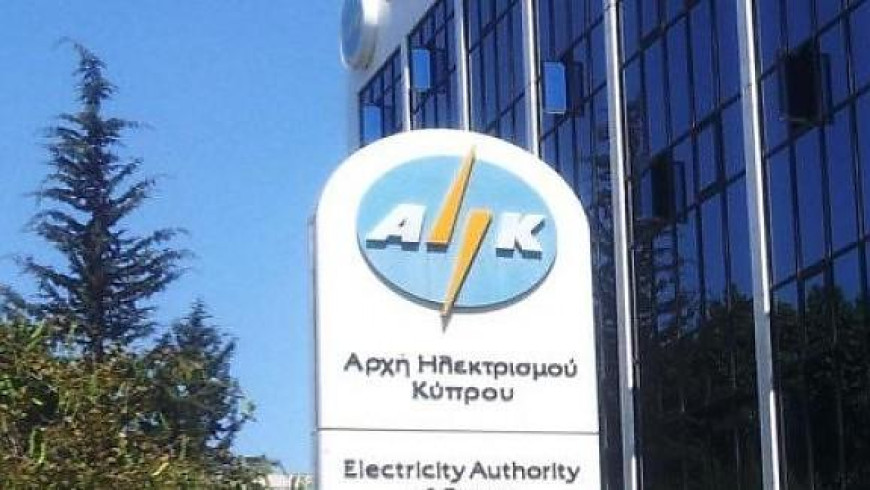Fiscal challenges facing Cyprus policymakers

The basic economic problem is to allocate limited resources efficiently among competing ends. The coronavirus pandemic with its adverse impact on public health and real economic activity and resultant tax collections has made this problem more acute for economic policymakers. Governments throughout the world now have less resources particularly in the form of falling tax receipts to deal with more problems stemming from the economic shock of the coronavirus. Governments not only have to fund their normal operations in providing education, health and social welfare services, and maintenance of physical infrastructure and of law and order, but have to provide economic assistance for new health problems and for households and businesses negatively affected by the economic crisis. Furthermore, policy-makers are needing to look ahead and raise sufficient funds to finance the expenditures required to support the robust and sustained recovery of their economies.
Short-term problems
More specifically, fiscal problems facing Government policy-makers can be presented in the case of Cyprus. The economy of Cyprus has been particularly hard-hit by the economic shock stemming from the spread of the coronavirus with value added of the important tourist industry estimated to fall by more than 75% in 2020. Furthermore, with domestic demand subdued real GDP could decline by at least 14 % in 2020. And depressed economic activity together with suspensions of certain tax payments including for VAT and personal income taxes are likely to contribute to a sharp large decline in actual tax receipts in 2020.
Against this background the Cyprus Government has needed to deal with the concurrent health and economic crises by providing support to the health sector and to households and businesses adversely affected by its harmful economic repercussions. To date the Government has allocated over 1.2 billion euro or more than 5% of 2019 GDP in fiscal expenditures for such assistance. In order to finance these measures and not deplete Government reserves in the face of serious declines in tax revenues, the Government during the first part of 2020 borrowed large amounts of euro in international markets. This brought the Government debt to 2019 GDP ratio to around 120% by mid-July. And with Government reserves, that comprise mainly deposits at the Central Bank of Cyprus at around 5 billion euro, the net debt to GDP ratio of the Government was approximately 97%.
However, with private sector business continuing to be depressed by feeble demand, especially for exports of tourist services, and recent monthly tax receipts declining by well over 30% on a yearly basis, large deficits are being recorded in the Government accounts. In consequence it is expected that the Government is likely to register a substantial overall deficit in 2020, that could be well beyond the official estimate of 4 to 5% of GDP. Yet despite the grim state of the public finances, it is highly probable that the Cyprus authorities in the coming months will be required to support the economy through among other things extending more fiscal assistance to suffering households and struggling businesses. In addition, the Government has debt maturities of some 770 million euro during the remainder of 2020. And with these more immediate financing requirements the Government most likely will have to deplete its reserves and be forced to reduce and/or delay certain public expenditures.
Medium-term problems
When the current socio/economic problems associated with the coronavirus are to a significant extent mitigated, hopefully with the early production and distribution of an effective and safe vaccine, the Government would be able to focus more on policies and reforms required for eliciting a sustained and equitable recovery of the economy.
In this respect, the formulation of fiscal and taxation policies underlying the Cyprus Medium-Term Budgetary Framework for 2021-2023 and the new budget and facilities of the EU, including the proposed Recovery Fund, provide Cyprus with scope and opportunity for undertaking the policies and reforms required to support the healthy recovery and transformation of the economy.
The Government cannot continue to borrow heavily so as to fund its mounting expenditure demands as its outstanding debt would reach unsustainable levels even if borrowing costs remain historically low. This means that the Government will have to substantially raise tax revenue as well as secure large grants from the European Union so as to fill the sizable fiscal hole. In this respect, it is noted that the latest Eurostat figures for 2018 show that the ratio of revenue from taxes and social contributions to GDP for Cyprus was 33.8% compared with EU average of 40.3%. This revenue shortfall mainly reflects the chronically low collection of revenue from taxes on income and wealth for Cyprus which amounted to 9.1% of GDP in 2018 compared with 13.2% for the euro area. Furthermore, the tax system of Cyprus has become increasingly regressive with much greater reliance on flat rate VAT and excise taxes to raise revenue.
Accordingly, a substantial reform of the Cyprus tax system is called for so as to make it more revenue-yielding and fairer. Progressive taxes on immovable property and inheritances should be introduced and personal income tax rates should be made more progressive as well. In addition, the tax administration needs to be overhauled to combat the very large amount of tax evasion in Cyprus that benefits disproportionately high income earners. Indeed, tax arrears to the Tax Department, the tip of the iceberg, amounted to 2.2 billion euro at end-2019 and, indeed, constitute much lost revenue.
In addition, to boost its budgetary resources to fund its expenditures the Government needs to access grant money available under new EU Medium Term Financial Framework for 2021 to 2027, that could be up to 1.45 billion euro for Cyprus, and under the proposed Recovery Fund, provide around 1.25 billion euro in total funds including possibly up to 650 million euro in grants.
While the Government may be successful in meeting the challenge of raising substantially its revenue envelope it would still not have sufficient resources to finance its large and various expenditure demands. And with such resources limited the more important challenge will be to spend these resources wisely in accord with socio/economic and environmental priorities. With respect to the use of resources from the EU Recovery Fund at least 30% of spending will have to go to “green” and “digital” investments. And in using the remainder the available funds a key question raised by Reza Moghadam in a recent Financial Times article[1] is “what kind of spending specifically promotes long-term recovery best?” Should Cyprus use considerable amounts of the public resources to support the hardest-hit sectors such as tourism or rather devote more funds to less hard-hit sectors that offer growth potential like higher education?
But in Cyprus and most other countries there are underlying problematic factors that are likely to hinder a sustained and equitable recovery through seriously impeding the productive allocation and effective implementation of Government expenditures. For instance, in Cyprus there is much institutional incompetence reflecting politically-influenced appointments and promotions as well as grossly inefficient procedures that contribute to the unsatisfactory preparation and delayed implementation of priority projects and programs. Most notably, Cyprus has failed to absorb and use productively a considerable proportion of the funds available from EU institutions under the current financial framework for 2014 to 2020 owing to the incompetence and inefficiencies of Government institutions in preparing and implementing projects eligible for using EU funds. In this connection, the inefficient procedures and politically-tainted decisions of the Tender Review Authority such as in the area of waste management projects represent a prime example.
Finally, it needs to be stressed that while the raising of a substantial amount of funds to support Government activities and essential services represents a very important challenge for policy-makers, it is the unproductive and wasteful use of available budgetary resources that will constitute a major threat in contributing to an economic crisis and in holding back economic recovery. In this respect, it was the immense squandering of the abundant funds available to banks that was the prime cause of the financial crisis of 2012/13 in Cyprus, a legacy that continues to this day with the extremely large volume of non-performing loans.
[1] Financial Times, 26/7/2020, Reza Moghadam, “The best way for the EU to spend its 750 billion euro fund”.







 3287.99
3287.99 1275.09
1275.09

